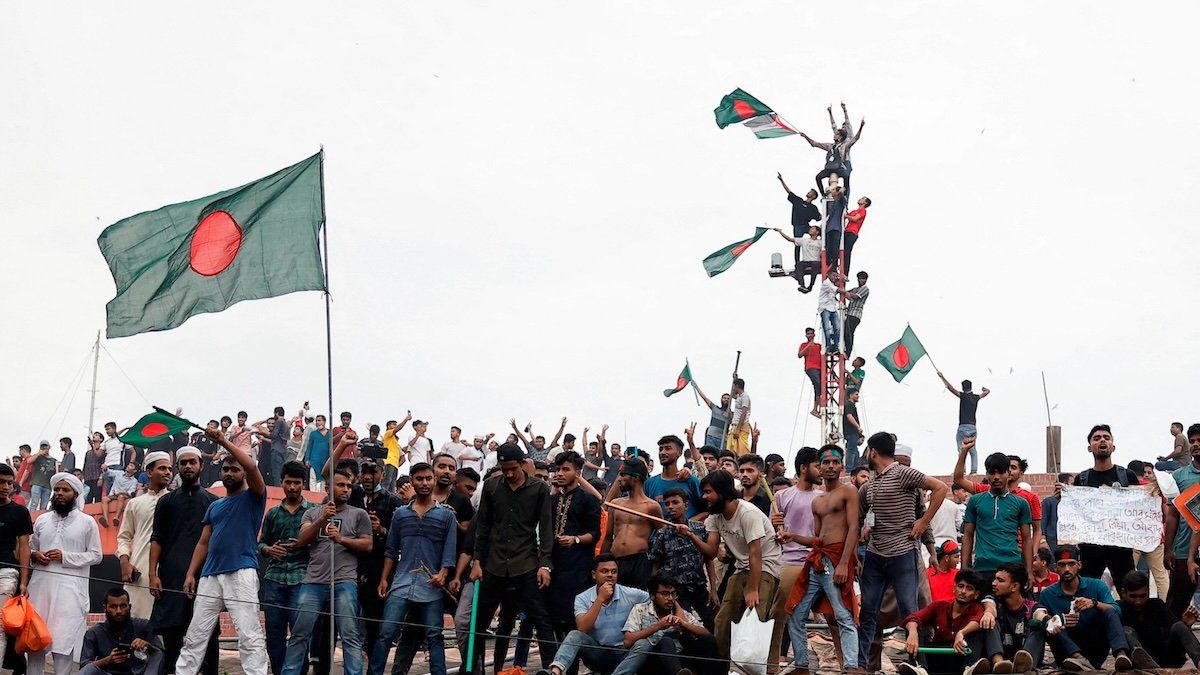Bangladesh faces an uncertain future after Prime Minister Sheikh Hasina on Monday resigned and fled the country amid deadly mass protests. The demonstrations came as Hasina increasingly faced allegations of authoritarianism and sharp criticism from top human rights groups.
She referred to the protesters as “terrorists,” and the demonstrations were met with deadly force by security forces. The student-led protests began over quotas for government jobs but morphed into a broader movement against Hasina, who won a fourth term in January in an election that was boycotted by the opposition.
What happens next? Army Chief Gen. Waker-Uz-Zaman, who announced Hasina’s resignation, says an interim government will be formed in the days to come.
Zaman is calling for calm. “I promise you all, we will bring justice to all the murders and injustice. We request you to have faith in the army of the country,” he said in a message to the public. “Please don't go back to the path of violence and please return to non-violent and peaceful ways.”
US Senate Majority Leader Chuck Schumer applauded the “brave protestors” in a tweet on Monday and called for elections to be held soon. “It’s critical to establish a balanced interim government that respects the rights of all & sets up democratic elections swiftly,” Schumer wrote. The White House also emphasized the need for the formation of a “democratic and inclusive” interim government. We’ll be watching to see if the interim government, once formed, takes steps toward new elections.
Protest leaders say they will not accept a military-led government, and on Tuesday, one of their key demands was met when the country’s parliament was dissolved, paving a path for an interim government.
GZERO’s very own MD Khan, who has family members in Bangladesh who have seen the protests firsthand, says “people are excited but nervous” about what comes next, and there is concern that “what should be a new Bangladesh can quickly turn into mob rule” unless level-headed leaders take charge, unite the people, and put political ambitions aside.
